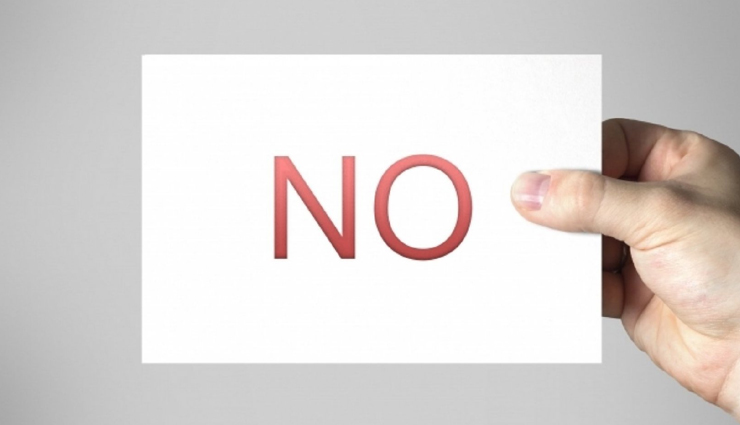- Home›
- Mates & Me›
- 3 Different Ways To Say No To Anyone
3 Different Ways To Say No To Anyone
By: Varsha Fri, 02 Oct 2020 12:12:54

That’s true both at work and in personal relationships. When a colleague asks you to take on a project you don’t have the bandwidth for, pushing back without leaving them feeling rebuffed is a valuable skill. Likewise, when you get an invite you’re just not up for, knowing how to say no politely keeps things from getting awkward. So how do you finesse your tone over email or text so the person you’re turning down knows you still care? Below you’ll find five strategies, as well as examples of how to say no nicely.
Here is a good rule to keep in mind about English; it is often better to be polite than it is to be direct. English speakers often use more words than are necessary to say ‘yes’ and ‘no’ because they are adding polite words to the simple messages they are trying to get across. If you are too direct in saying ‘no’ in English this can be considered rude. Let’s take a look today at some different, polite, ways to say ‘no.’
You might want to practice these new expressions often, so you don’t have to worry about appearing rude when speaking English to native speakers.
Here are three points to remember when you’re using this particular script—or something similar—to say “no” to a friend.

1. Say it Fast
Don’t keep your friend hanging for days or weeks, hoping she’ll “forget” about it. She won’t.
2. Explain Why—Briefly
Depending on the nature of your relationship, you may want to explain why you’re saying no. But don’t over-explain or give your entire life story. That’s not necessary.
In the example above, I mentioned that I have a particularly busy week. Period.
In some instances, no explanation is required. But for close friends, it can often be a nice touch. If you’re concise and honest, friends will (almost) always understand.

3. Propose Something Else
The key to crafting a gentle “no” is to include an alternative form of support. Think: a link to a helpful blog post, a resource, a worksheet, a few quick tips, or a referral or personal introduction to someone who might be able to help.
This “alternative” should obviously be something that you are willing to give (or do)— because it is easier, less complicated, or less time-consuming, it doesn’t cost money, or it just feels good for you to offer. Not something that takes more of your time.
Don’t over-clutter your calendar with commitments that derail your focus, pulling you away from the work that you truly want to do.
It’s not good for your career. It’s not good for your soul.
And if someone gets furious because of your perfectly reasonable, elegantly articulated “no?” Well, they were probably never your true friend to begin with.
Good thing you know.
So that now, you can say “yes!” to a friendship with somebody else.





